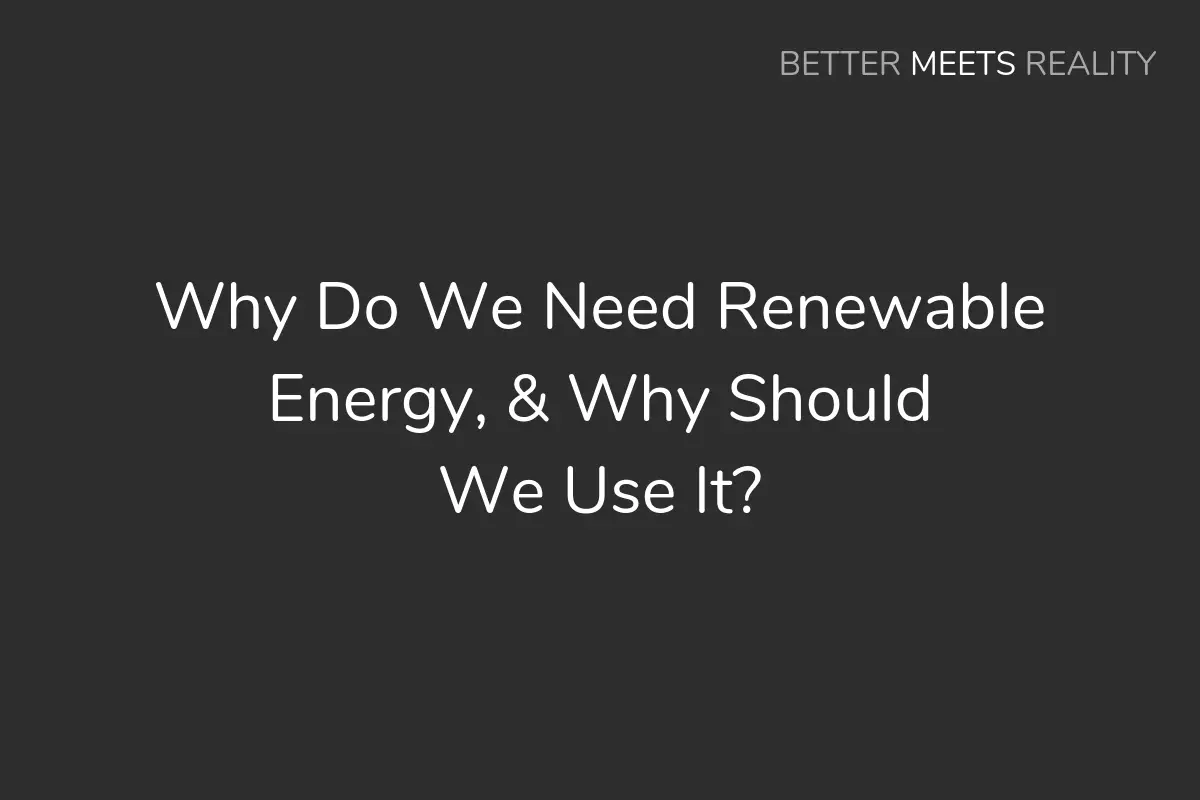With that in mind, we’ve looked into reasons why we might need renewable energy now, and into the future.
Firstly, What Is Renewable Energy Mainly Used For Right Now?
Renewable energy is used mainly for electricity generation across society right now.
At this point in time, when looking at the % share of different energy sources that renewable energy makes up of an entire industry, renewable energy has not penetrated significantly into the heating and cooling, and also transport industries (compared to how much it’s used in electricity generation)
Why We Might Need Renewable Energy Now, & Going Into The Future
Apart from the uses for renewable energy (such as electricity generation), the benefits that renewable energy might provide might be some of the main reasons we might need these energy sources going into the future.
The potential drawbacks of some fossil fuels and other types of energy sources like nuclear may be some of the reasons we need renewable energy too.
We’ve listed those benefits and drawbacks in these guides:
Potential Pros & Cons Of Renewable Energy
Potential Pros & Cons Of Fossil Fuel Energy
Potential Pros & Cons Of Nuclear Energy
Some of the key benefits of renewables might be that:
– Renewable energy is, as the name suggests, renewable
Resources like sunlight and wind aren’t considered finite like fossil fuels and uranium
This means that they may not have the same resource depletion concerns
Sunlight and wind are also abundant in some geographic locations and climates
– Renewable energy generally doesn’t have the negative environmental impact that some fossil fuels might across some environmental indicators
Particularly when it comes to emissions and air pollution
Potential Challenges & Issues With Using More Renewable Energy (Now, & In The Future)
On the other hand, it’s also worth pointing out that using more renewable energy doesn’t come without it’s own potential challenges and issues.
Apart from the obvious cost, the variable nature of energy sources like solar and wind, and having to integrate new energy sources into the power grid, along with providing adequate infrastructure, are all examples of challenges.
Additionally, the reality is that some major countries around the world still mostly use fossil fuels as the predominant energy sources in their energy mix.
And, fossil fuels still serve some very important uses across society.
So, whilst renewable energy may have some clear benefits, it may not be a perfect solution, or the sole solution.
In addition to environmental and sustainability priorities, there might be economic, practical, and social priorities to take into consideration when selecting energy sources and developing an energy strategy for cities and counties.
Future Energy Mixes May Contain Different Types Of Energy Sources
Cities and countries may not need to choose between one of renewable energy, or conventional energy sources.
Their energy mixes may contain a mix of both, and they may choose to use different energy sources in a complementary way to one another.
Having said that, there are already cities and countries that use 90% to 100% renewable energy for electricity generation
Some cities and countries may have different types of limitations that impact that possibility, and renewable energy itself may have limitations unless there’s technology improvements and future developments that help facilitate it’s increased use across some applications and scales
Sources
1. Various BMR Guides
','' ); } ?>